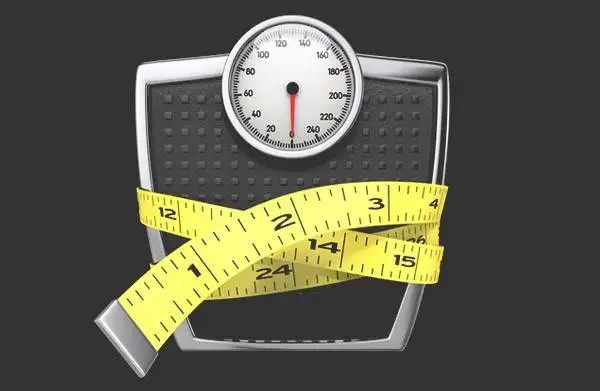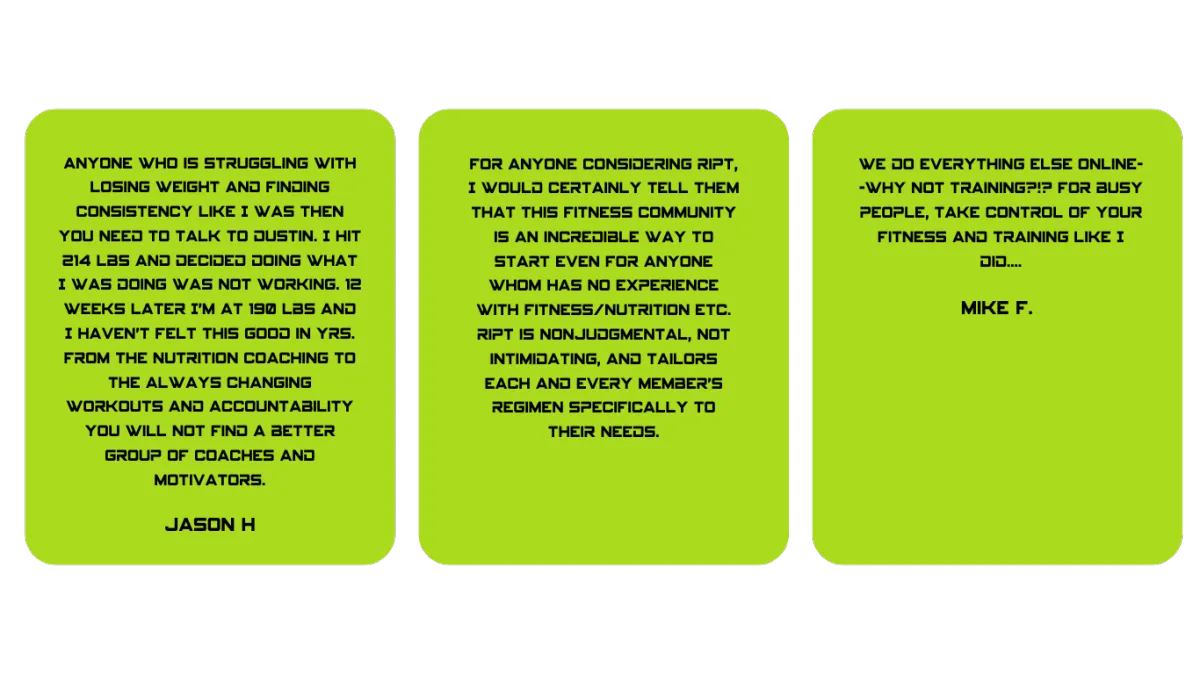ONLINE PERSONAL TRAINING
Book A Free Discovery Call
IN-PERSON
TRAINING
Your First 7-Days Are FREE!
ONLINE PERSONAL TRAINING
Book A free Discovery Call
IN-PERSON
TRAINING
Your First 7-Days Are FREE!
HERE’S WHAT TO EXPECT
WITH A RiPT FITNESS MEMBERSHIP

Personal Training and Online Fitness
Offers personal training and online fitness locally and nationwide. In the gym we focus on dynamic group interval workouts. During class you’ll combine floor work (using a variety of equipment) with exercises on the Woodway Curve treadmills and Concept2 Ski ergometers. Each class will start with a dynamic warm up and end with a group stretch, two key factors in any sound workout regimen. At RiPT you’ll never do the same workout twice so you’ll never get bored!
Our workouts are based on science and designed to torch calories, burn fat, and tone muscle. Participants burn an average of 500 to 1,000 calories in just 45 minutes. Bonus: the RiPT (or afterburn) effect will keep you burning calories up to 36 hours post-workout!
Every workout is relative to the participant so it’s perfect for any fitness level and any goal. Our top-notch and highly-qualified instructors are there to progress or regress any exercises to fit your specific needs.
We pride ourselves on our family atmosphere and we truly care about each and every one of our members. Come try RiPT free for a whole week and join our fit family!
Not local? No problem! We offer online personal training and online fitness. RiPT Fitness has a team of personal trainers able to help you reach your goals: whether you want to lose weight, get stronger, burn stubborn belly fat, tone up, and become healthier from the comfort of your own home, or from anywhere really! We work with clients all over the nation.
HERE’S WHAT TO EXPECT
WITH A RiPT FITNESS MEMBERSHIP

Personal Training and
Online Fitness
Offers personal training and online fitness locally and nationwide. In the gym we focus on dynamic group interval workouts. During class you’ll combine floor work (using a variety of equipment) with exercises on the Woodway Curve treadmills and Concept2 Ski ergometers. Each class will start with a dynamic warm up and end with a group stretch, two key factors in any sound workout regimen. At RiPT you’ll never do the same workout twice so you’ll never get bored!
Our workouts are based on science and designed to torch calories, burn fat, and tone muscle. Participants burn an average of 500 to 1,000 calories in just 45 minutes. Bonus: the RiPT (or afterburn) effect will keep you burning calories up to 36 hours post-workout!
Every workout is relative to the participant so it’s perfect for any fitness level and any goal. Our top-notch and highly-qualified instructors are there to progress or regress any exercises to fit your specific needs.
We pride ourselves on our family atmosphere and we truly care about each and every one of our members. Come try RiPT free for a whole week and join our fit family!
Not local? No problem! We offer online personal training and online fitness. RiPT Fitness has a team of personal trainers able to help you reach your goals: whether you want to lose weight, get stronger, burn stubborn belly fat, tone up, and become healthier from the comfort of your own home, or from anywhere really! We work with clients all over the nation.
WHAT OUR CLIENT SAY
OUR WORKOUTS FEATURE:

Woodway Curve Treadmills
Woodway Curve treadmills are manually driven, making them 30% more effective than a regular treadmill with less joint impact. It’s unique design naturally improves running form, and being self-powered means it’s better for the environment!

Polar Heart Rate Tracking
All RiPT workouts utilize Polar, a new innovative heart rate monitoring system that tracks raw heart rate, percentage of heart rate max, effort level, and calories burned. Access your stats anywhere, anytime.

Assessments
Complementary health assessments for all members include: height, weight, blood pressure, anthropometric body measurements, body fat analysis, and waist:hip ratio. These assessments help you keep track of your progress and stay motivated to achieve your health and wellness goals.
SCHEDULE A NO SWEAT DISCOVERY CALL
7
(DAYS OPEN/WEEK)
45-60
(MINUTE SESSIONS)
500+
(AVERAGE CALORIES
BURNED/SESSION)
FIND US ON FACEBOOK
INSTAGRAM INSPIRATION
SPEAK WITH A FITNESS SPECIALIST
Copyright © 2024 RIPT Fitness. All Rights Reserved • Privacy Policy



